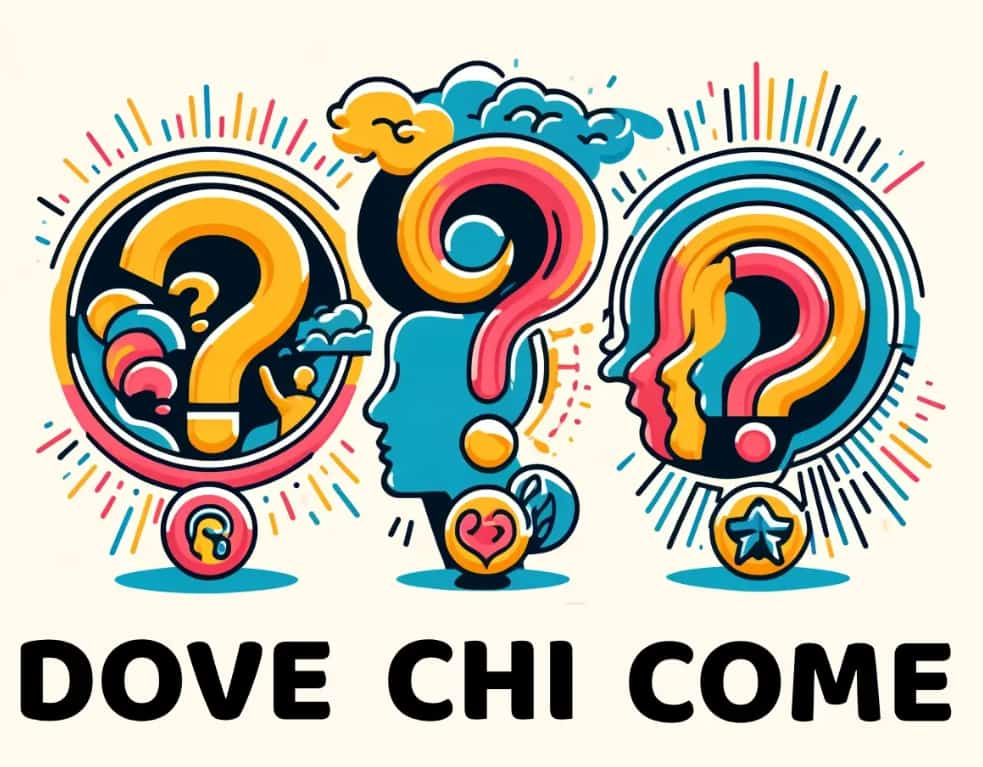Asking Questions in Italian
How to Ask Questions in Italian
Asking questions in Italian is pretty simple: if you are writing, you need a question mark at the end of the sentence, and if you are speaking, you need the right intonation, which you’ll get with practice.
Just like in many other languages, there are some question words you need to learn to ask specific questions. But the placement of this question words requires a bit more of attention, especially if your native language is English.
Let’s now learn how to ask a question in Italian.
Simple Questions
Unlike English, the order of the items in Italian sentences does not change whether you are asking a question or stating something.
In Italian, you can just take a statement and turn it into a question by changing the intonation with which the sentence is uttered.
For example:
Tu sei Laura. -> Tu sei Laura?
You’re Laura. -> Are you Laura?
Hanno vent’anni. -> Hanno vent’anni?
They are twenty years old. -> Are they twenty years old?
Vai a Roma. -> Vai a Roma?
You’re going to Rome. -> Are you going to Rome?
Lavorano da casa. -> Lavorano da casa?
They work from home. -> Do they work from home?
Studi ancora francese. -> Studi ancora francese?
You’re still studying French. -> Are you still studying French?
Questions with Prepositions
Just like it happens with the verb-subject movement, English requires to alter the order of the sentence and put prepositions at the end to ask questions.
For instance, you might ask: Who are you with?
Here, the preposition “with” is placed at the end of the sentence, although it is conceptually linked to the question word “who”. In fact, when you answer this type of question you might say “I am with Carlo”, where “Carlo” is linked to the question word “with”.
In Italian, the link between the preposition and the item it refers to is always rigidly kept, as in the sentence below:
Con chi sei?
Who are you with?
Sono con Carlo.
I am with Carlo.
This phenomenon occurs with all Italian prepositions and question words.

Italian Question Words
Here are the question words you’ll definitely need to learn if you want to ask a specific question.
Have a look at them:
- Chi? (Who? Whom?)
- Cosa? (What?)
- Quando? (When?)
- Dove? (Where?)
- Perché? (Why?)
- Come? (How?)
- Quale/Quali? (Which?)
- Quanto/Quanta/Quanti/Quante? (How much?/How many?)
While in English they are called wh-pronouns because they all start with the letters wh- (exception for “how”) in Italian we do not have a specific way to label them beside the linguistic term “question words”.
However, I find interesting the fact that they all start with the sound [k], either with the letter “c” or the nexus “qu”, with the exception of “dove”.
The characteristic “k” sound at the beginning of many Italian question words is not unique to Italian but is a feature shared by many Romance Languages. This phonetic pattern can of course be traced back to Latin, main protagonist of the history of the Italian language.
For instance, Che comes from the Latin “quid” (what), Chi comes from “quis” (who), and Come originates from “quomodo”, which means “in what way”.
These words evolved phonetically over centuries as Latin transitioned into the various Romance languages, including Italian. The initial “qu-” in Latin typically transformed into a “ch-” or “c-” sound in Italian, whose pronunciation is a hard “k” sound.
Examples of Sentences with Questions Words
Let’s have a look at some examples:
Chi viene stasera?
Who’s coming tonight?
Cosa vuoi?
What do you want?
Quando vai a casa?
When are you going home?
Dove andiamo?
Where are we going?
Perché non mangi?
Why aren’t you eating?
Come stai?
How are you?
Quale preferisci?
Which one do you prefer?
Quanto costa?
How much is it?
Did you notice anything different?
In questions beginning with a question word, if you want to mention the subject you have to place it at the end of the sentence! Here are two examples:
Quando arriva Matteo?
When does Matteo arrive?
Dove andate voi?
Where are you going?
Ready to Ask Questions
Practice the use of Italian question words with your Italian friends or with our AI tutor, get to know your interlocutors better thanks to these question words and start mastering Italian like a native speaker.
Per quanto tempo studierai?
For how long are you going to study?
Quante ore al giorno studierai italiano?
How many hours per day are you going to study Italian?
Dove lo studierai?
Where are you going to study it?
Let me know your answers!




